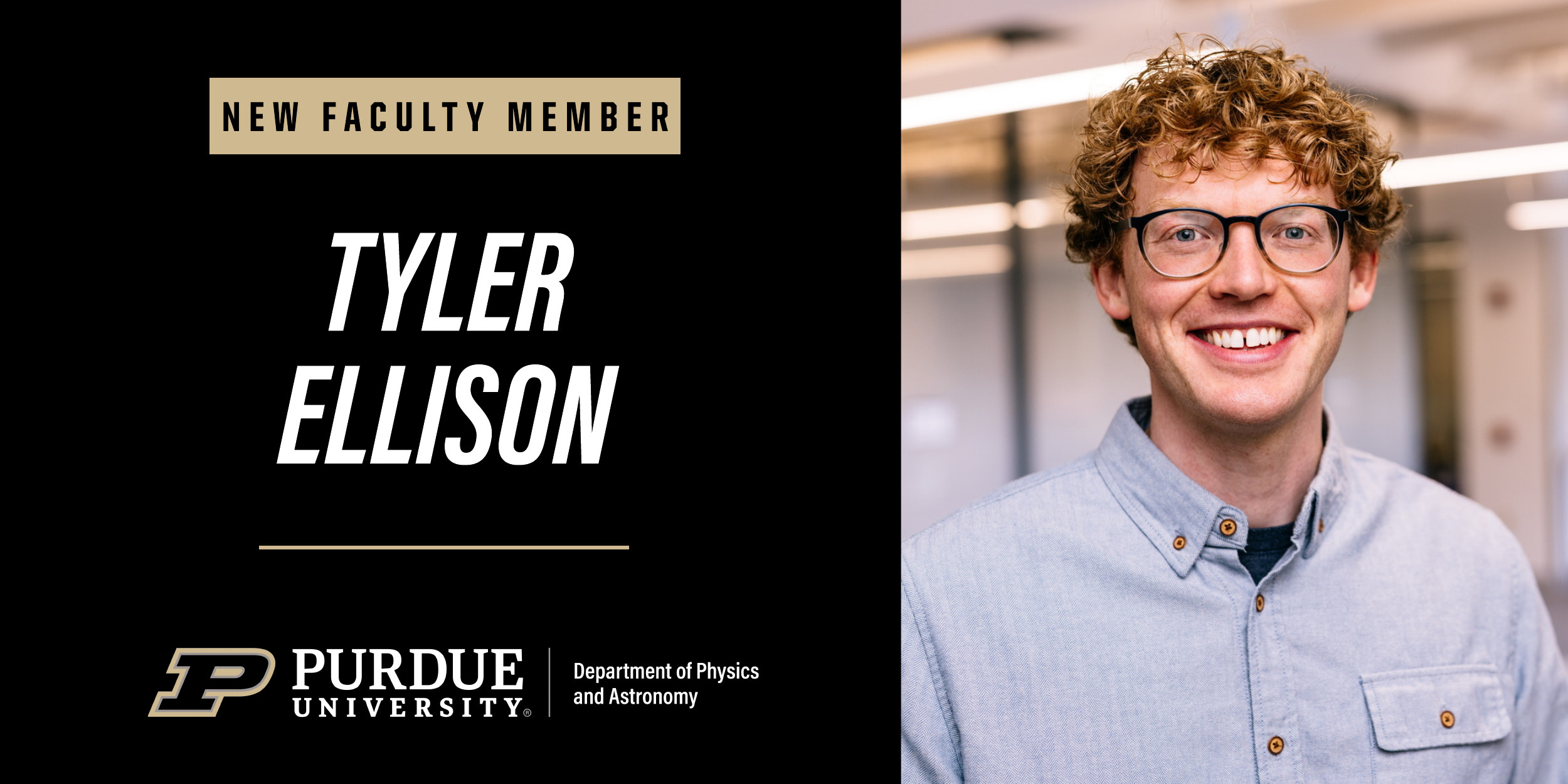Tyler Ellison joins Purdue Physics and Astronomy faculty
2025-11-03

Tyler Ellison has joined Purdue University’s Department of Physics and Astronomy as an assistant professor. His research focuses on developing new quantum error-correcting codes that could make quantum computing more reliable and efficient.
“Quantum computers are noisy,” Ellison said. “Their components are prone to errors from tiny fluctuations in the temperature, stray particles from cosmic rays, and other disturbances. They are also subject to uniquely quantum-mechanical errors that have no classical counterpart.”
To make quantum computing feasible, researchers like Ellison design quantum error-correcting codes that protect information from these inevitable errors. His group’s work draws inspiration from exotic, low-temperature phases of matter to improve both the stability and efficiency of quantum systems.
“Our goal is to provide robust protection of the information while simultaneously reducing resource overheads and enabling efficient quantum algorithms on the encoded data,” Ellison said.
This fall, Ellison is teaching PHYS 172, a large introductory course on classical mechanics. He said he enjoys helping students build their foundational understanding of physics and physical reasoning. “I appreciate that I have the opportunity to help students build their foundations in physics,” he said. “It also doesn’t hurt that, by the law of large numbers, there’s always at least one student in the audience who laughs at a pun.”
Originally from the suburbs of Minneapolis, Minnesota, Ellison said the move to West Lafayette felt surprisingly familiar. “The fields of corn and Midwestern culture in Indiana feel fairly familiar to me,” he said. “In West Lafayette and the greater Lafayette area, I have been particularly struck by the strong sense of community. I am excited to continue exploring the farmer’s markets and enjoying the community events.”
Ellison said one of his main reasons for joining Purdue was the university’s strong, collaborative approach to quantum science, especially through the Purdue Quantum Science and Engineering Institute (PQSEI).
“One of my primary reasons for choosing Purdue University is its strong commitment and interdisciplinary approach to quantum science,” he said. “Purdue also offers an unusual depth in areas closely tied to my research. What makes it especially exciting is that the expertise extends across fields such as computer science and mathematics.”
Ellison earned his bachelor’s degree from Washington University in St. Louis and his PhD from the University of Washington. He completed postdoctoral fellowships at Yale University and at Perimeter Institute before coming to Purdue.
Outside of the lab and classroom, Ellison enjoys playing casual badminton, experimenting with new foods in the kitchen, and learning new board games. “I’m looking forward to contributing to the momentum of quantum science at Purdue,” he said. “The combination of depth and breadth of research here makes it an ideal place to start my faculty career.”
About the Department of Physics and Astronomy at Purdue University
Purdue's Department of Physics and Astronomy has a rich and long history dating back to 1904. Our faculty and students are exploring nature at all length scales, from the subatomic to the macroscopic and everything in between. With an excellent and diverse community of faculty, postdocs and students who are pushing new scientific frontiers, we offer a dynamic learning environment, an inclusive research community and an engaging network of scholars.
Physics and Astronomy is one of the seven departments within the Purdue University College of Science. World-class research is performed in astrophysics, atomic and molecular optics, accelerator mass spectrometry, biophysics, condensed matter physics, quantum information science, and particle and nuclear physics. Our state-of-the-art facilities are in the Physics Building, but our researchers also engage in interdisciplinary work at Discovery Park District at Purdue, particularly the Birck Nanotechnology Center and the Bindley Bioscience Center. We also participate in global research including at the Large Hadron Collider at CERN, many national laboratories (such as Argonne National Laboratory, Brookhaven National Laboratory, Fermilab, Oak Ridge National Laboratory, the Stanford Linear Accelerator, etc.), the James Webb Space Telescope, and several observatories around the world.
Written by: David Siple, communications specialist, Purdue University Department of Physics and Astronomy